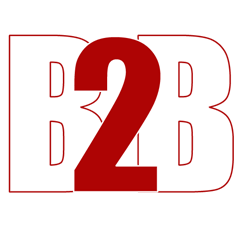Some businesses are "super accelerators." They move from concept to full-scale production quickly, serving a market need, and just getting the job done. Others, however, aren't so fortunate. Something holds them back, and they're not able to reach their full potential.
In many cases, the problems emerge from so-called "drag factors" - intrinsic issues that harm the firm's output, making it challenging to build a winning business model.
Here are some drag factors that your business might face and how to overcome them.
Internal Focus
Ideally, companies should focus wholly on serving their customers and the market need. Many enterprises, though, fail to do this effectively. Instead, they get wrapped up in internal politics, and eventually, they crumble under the weight of their own self-obsession.
The problem here is culture. People in your organization see it as a place to win socially, instead of serving customers. That has to change.
Lack Of Skills
You might have a great business idea, but unless you have people in your organization with the right skills, you won't progress very far. Clients will soon pick up on the fact that you don't seem to be able to deliver, and they'll move over to a competitor.
Finding skilled people can be tough, especially when you're first getting going. With that said, you should keep your eyes peeled for opportunities in the labor market. If there aren't any, you can often improve skills via e-learning.
Poor IT Networks
Information technology is at the heart of the operations of practically every firm. Without it, you're stuck. But as Fidelis points out, a lot of companies run mediocre, lackluster systems that eventually get in the way of what they're trying to achieve. Poor performance eventually eats into departmental budgets and productivity, putting competitors at a distinct advantage.
The solution to this is usually to pass the job over to somebody else. Third-party IT providers take up the slack, manage systems remotely, and iron out bottlenecks that might be harming overall performance.
Complexity
Selling one product to the market is a challenge. Selling two is even more difficult. But modern companies go well beyond this, adding complexity to their operations via multiple channels, harming their ability to sell. Firms want to sell multiple products across multiple markets from numerous locations, making organizing things an operational nightmare.
When starting out, keep things simple. The more complexity you add, the more time people in your enterprise will spend emailing each other and in meetings, not doing work,
Being Too Complacent
It is often easy to become complacent in business. When you're onto a winning idea that sells, your firm can afford to stagnate. Some companies get away with this approach, but most don't. If you want a business to succeed, you need to switch things up and try new ideas continually. Just because you have a product that sells well right now doesn't mean you'll have one that will do the same in five years. Thus, it would help if you started planning now.
- 2 views





